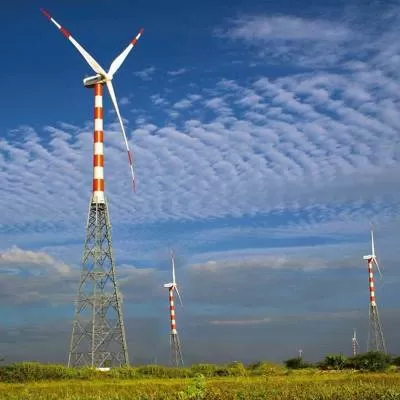

The Solar Energy Corporation of India (SECI), representing the National Institute of Wind Energy (NIWE), has launched the bidding process for the allocation of sea-bed lease rights aimed at developing 4 GW offshore wind power projects. This initiative, conducted on a build-own-operate (BOO) basis, marks a significant step in India's renewable energy ambitions.
Scheduled to conclude on May 6, 2024, with a bid opening the following day, this opportunity beckons both domestic and international players to participate in India's burgeoning offshore wind energy sector. The projects, situated along the scenic Tamil Nadu coast, entail a comprehensive scope of work spanning surveys, design, construction, financing, operation, maintenance, and decommissioning.
Integral to the project's success is the development of robust transmission infrastructure facilitating grid connectivity and efficient power evacuation from offshore to onshore substations. The bid entails a bid document fee of ₹20,000 ($240.86) and a bid processing fee of ₹1.5 million ($18,065), along with an earnest money deposit of ₹10 million (~$120,440.7).
The lease rights, governed by legal stipulations, grant exclusive access to designated offshore wind blocks upon payment of lease rentals. These rights encompass the execution of surveys and subsequent development activities adhering to project agreements. Upon completion of surveys and fulfillment of preconditions, NIWE will formulate concession agreements delineating project execution in compliance with Offshore Wind Energy Lease Rules, 2023.
It's noteworthy that the Ministry of New and Renewable Energy (MNRE) or NIWE aren't obligated to procure power from these projects. However, developers stand to benefit from provisions such as power evacuation infrastructure, transmission charge waivers, renewable energy credits, and carbon credit benefits, subject to governmental determinations.
The responsibility for power evacuation infrastructure development rests with the developer, while the central transmission utility is tasked with the offshore pooling substation and associated infrastructure. Lease rights extend to cable routes outside the seabed area, ensuring comprehensive control over transmission infrastructure.
Financial eligibility criteria demand a robust net worth based on cumulative financial performance over the past three years. This criterion ensures the capability of bidding entities and consortia to undertake project development and financing.
This initiative aligns with India's broader renewable energy objectives and follows recent government moves to promote offshore wind energy. Earlier expressions of interest by NHPC and the notification of offshore wind energy leasing rules by the Ministry of External Affairs underscore India's commitment to diversifying its energy mix and achieving sustainability goals.
In conclusion, the bidding process for offshore wind power projects represents a pivotal opportunity for stakeholders to contribute to India's renewable energy transition while capitalizing on the nation's vast offshore wind potential.